“Life Beyond Earth”, a powerful new installation that brings to life Skidmore, Owings & Merrill and the European Space Agency’s concept of a Moon Village, launched last week at the 17th International Architecture Exhibition of La Biennale di Venezia. The installation transports visitors to a lunar settlement in the near future — a testing ground for new ways of living in extreme environments and a model for global collaboration in outer space.
“Life Beyond Earth” offers a vision for a sustained and sustainable human presence on the Moon,” said SOM Design Partner Colin Koop. “The installation enables visitors to imagine how new technologies and a collaborative approach to human space exploration could create new forms of community.”
The Moon Village project is the result of a multidisciplinary initiative launched by ESA and was developed in collaboration with MIT AeroAstro Professor and former NASA astronaut Jeffrey A. Hoffman. At the same time, the project answers the theme of Biennale Architettura 2021 — “How will we live together?” — by illuminating the ways in which space habitation research provides insights into global coexistence and resource sharing that are equally applicable to pressing problems here on Earth.
“Life Beyond Earth” looks at human space exploration not simply as a design challenge but as an opportunity to create a better world,” said SOM Associate Director Georgi Petrov. “The project shows how global collaboration and resource sharing in space can lead to better outcomes for all.”
Within “Life Beyond Earth”, visitors encounter an expansive site model that provides an overview of the master plan for the Moon Village. Thanks to its proposed location in the Moon’s south polar region, the settlement will receive near continuous daylight throughout the lunar year, enabling it to achieve self-sufficiency by harnessing sunlight for energy.
A larger scale model of an individual habitat module demonstrates SOM and ESA’s futuristic space architecture concept, giving visitors a tactile sense of the design while explaining the engineering and technology that guide it. The module’s inflatable design enables it to be compressed for transport by rocket and then inflated to its full size once on the Moon. However, unlike previous inflatable designs that place the structural and mechanical systems at the center, SOM’s solution allows for an open interior that optimizes the living experience.
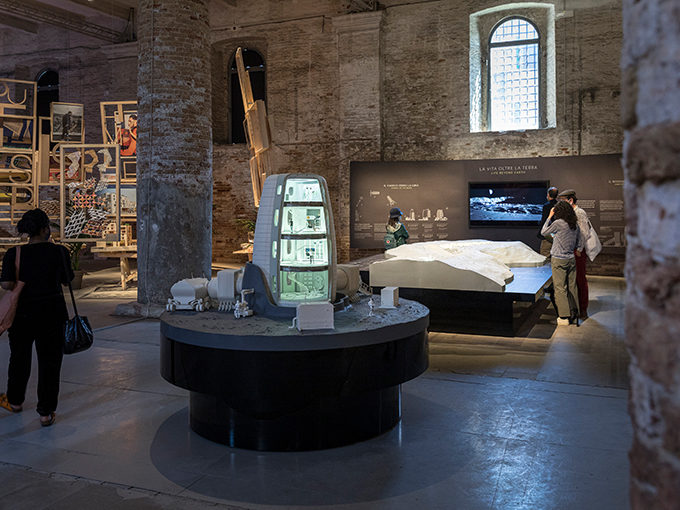
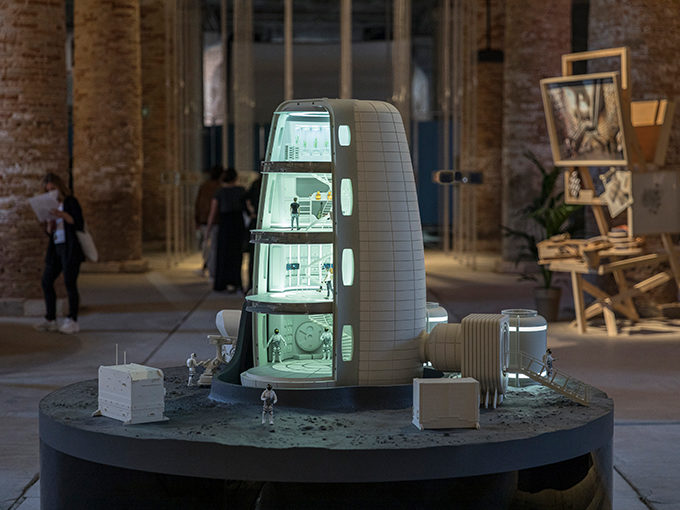
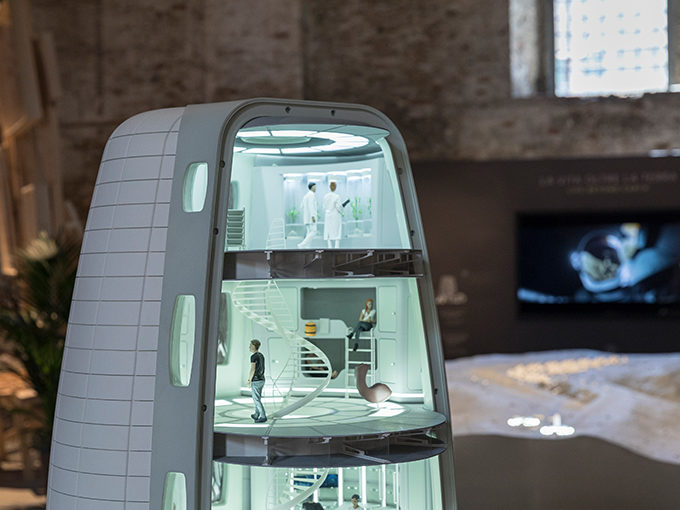
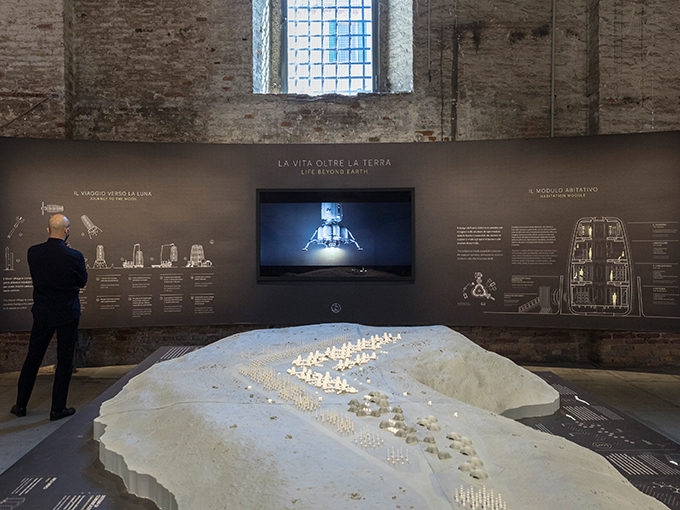
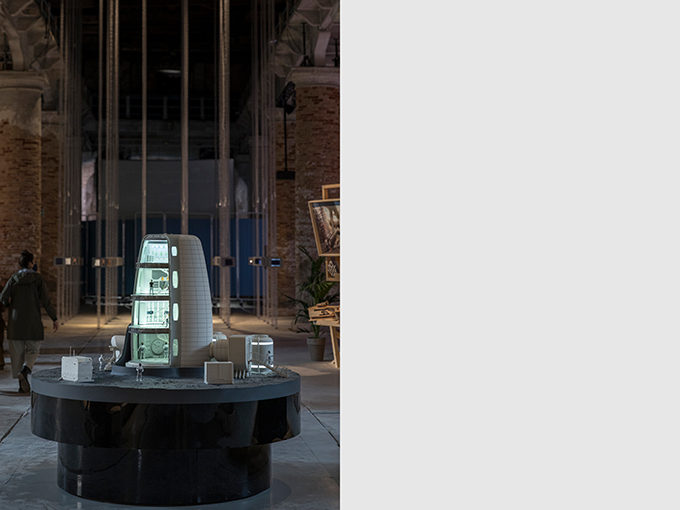
“Life Beyond Earth” presents a paradigm shift in space architecture,” said SOM Senior Designer Daniel Inocente. “Our designs for habitable modules emerge not just from engineering constraints but from an understanding of the human experience — from a commitment to creating an environment that brings everything one needs to survive and thrive under the most extreme of conditions.”
The animated film allows Biennale visitors to imagine the Moon Village in operation and understand the complexities that inform its design. Narrated by Hoffman, the film brings viewers on a journey from Earth to the Moon and demonstrates how the settlement will grow and evolve over time.
